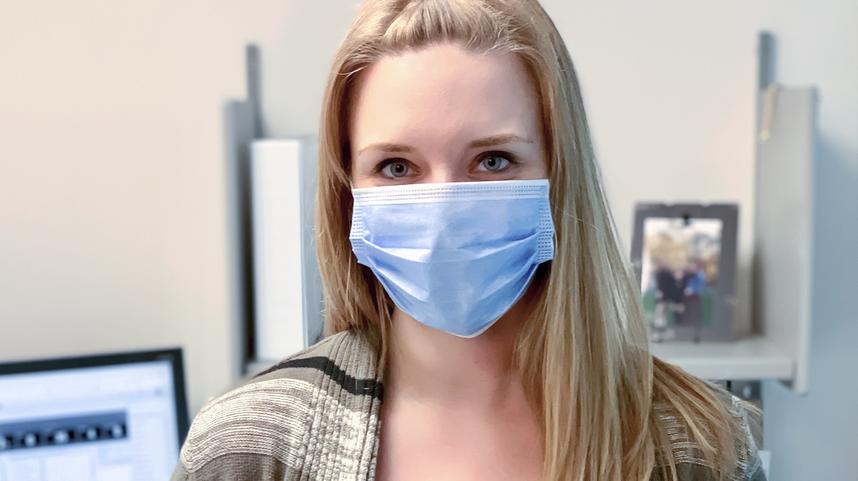1. Keep your face clean
Regardless of the type of face mask you wear, it’s important to wash your face before putting on and after removing your mask. Remember to always wash your hands before touching your face or mask.
- Wash your face with lukewarm water and a mild and gentle facial cleanser to remove dirt and oils accumulated throughout the day or night.
- Avoid harsh cleansing agents which may lead to further irritation.
- Cleansers that are fragrance-free tend to be less irritating. Remember that botanical extracts and essential oils impart fragrance and may be irritating to those with sensitive skin.
- If your face mask is washable, wash it frequently.
2. Moisturize your skin
Dry skin can be easily irritated. Moisturizers help maintain healthy skin. It’s important to apply a moisturizer after washing your face to keep skin from becoming dry.
- Apply a moisturizer that is free of common skin irritants such as dyes, fragrance, lanolin, parabens, and formaldehyde releasers, which may promote irritation.
- For best results, choose a moisturizer that fits your skin type. Here’s how to choose the best moisturizer for your skin.
- For extremely dry skin, use an ointment before bedtime to lock in extra moisture while you sleep. Be sure it is non-comedogenic (won’t clog pores). You may want to apply an ointment before wearing a mask for long hours to help prevent a friction rash on your face.
3. Avoid wearing makeup
Only your eyes can be seen when wearing a mask.
Let your skin breathe easily. When you wear makeup under a mask, it can lead to clogged pores and breakouts.
4. Apply hydrocortisone cream to itchy skin
We have all been told to avoid touching our face, but that may be difficult if you develop a skin rash or start to experience red and irritated skin.
- Apply an over the counter (OTC) 1% hydrocortisone cream for the temporary relief of itching associated with minor skin irritations, inflammation and rashes.
- Choose a hydrocortisone cream for sensitive skin that is formulated for facial use.
- Be sure it is labeled non-comedogenic (won't clog pores).
Contact a doctor
As always, contact your dermatologist if you develop skin irritation and it doesn't get better after several days.
